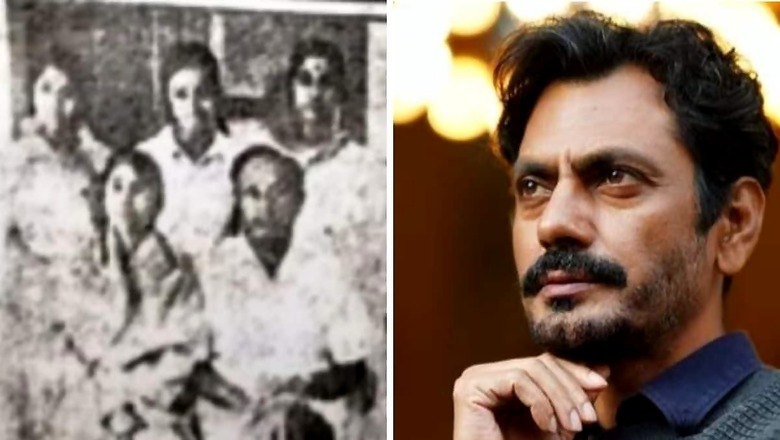
views
Upendra Nath Rajkhowa, a former judge from Assam who was sentenced to death for the murder of his wife and three daughters in 1970, is back in the news. Actor Nawazuddin Siddiqui is all set to play the character in a biopic on the judge.
His brother and producer of the film Faizuddin has confirmed the project.
“I was super intrigued by this story and I really wanted to be a part of such a film so I thought of going ahead and producing this film myself in my own production house… We all already know the versatility and range of Nawaz and I am delighted to announce this project with my brother,” said Faizuddin.
WHO WAS JUSTICE RAJKHOWA?
Rajkhowa was appointed as the judge to Lower Assam’s Dhubri District and Sessions Court in1969.
He first came to Dhubri alone and stayed at the Circuit House and subsequently shifted to the official residence.
During the Durga Puja holidays, he was joined by his wife, Putuli (Putul), and three daughters — Nirmali (Linu), Jonali (Luna) and Rupali (Ruplekha or Bhantu). Luna and Bhantu soon went back to Guwahati as their colleges were reopening.
GOT 2 PITS DUG
A few days before Magh Bihu, on January 14, 1970, Rajkhowa asked Bigan Prosad Rout, peon of the District Judge’s Court, to cut a wooden post near the bathroom attached to his bedroom. Later, he asked Rout to uproot the stump of the post, which was done with help from Md. Sahid Ali, a peon in the Assistant District Judge’s office at Dhubri, and Radha Nath Mali, who was the gardener at Rajkhowa’s residence. Rajkhowa then asked the peons not to fill up the pit, as he wanted to grow some plants there.
After some days, Rajkhowa got another pit dug by Sahid, to the east of Radha’s quarter within the compound of the official residence. He told them he would plant Padam flowers brought from Coochbehar there.
LAST SEEN
On Saraswati Puja day on February 10, 1970, Rajkhowa asked his peons and orderly to watch the celebrations. When they returned around 8.30pm, they saw Rajkhowa sitting with his wife and the eldest daughter by the fireplace. That was the last time the two were seen.
Soon, the other two daughters also went missing.
THE CONFESSION; OFFERED SERVANT RS 1,000
The sequence of events came to light after police arrested and questioned Rajkhowa.
Then statement by Barada Sarma, then IGP of Assam Police, in the court stated: “Shri U. N. Rajkhowa confessed before me to the effect that he along with Shri Umesh Baishya, his personal servant, killed his wife and eldest daughter on 10-2-70 night after 12 A.M. i.e. 11-2-70. Umesh Baishya and Rajkhowa then killed Jona and Ruplekha on 25-2-70.”
According to police, Baishya was offered Rs 1,000 for the work. Rajkhowa later confessed that the bodies were buried in the compound of the official residence. After the doctor’s report confirmed the absence of any poisonous element and stated haemorrhage as the cause of death, Baishya confessed that he hit the women with a hard object.
HOW RAJKHOWA KEPT MISLEADING
Sarma stated in the court that in May 1970, he started getting doubts about the mysterious disappearance of Rajkhowa’s wife and the three daughters. So he got in touch with the girls’ maternal uncles and other relatives. Rajkhowa had been claiming that the women were at their relatives’ houses in Kokrajhar, Delhi and Darjeeling.
However, Ajit Sarma, A Delhi-based relative of Rajkhowa, told police that he had met their common relative, Lakhi Goswami, at Kokrajhar in May 1970, but did not see the women.
Eventually, Rajkhowa fled Dhubri, which confirmed police’s suspicion, and was found at a hotel in Siliguri, where he was arrested.
DEATH SENTENCE TO JUDGE, LIFE FOR ACCOMPLICE
Rajkhowa was awarded death sentence and hanged till death inside Jorhat Jail. However, he never revealed the motive behind the murders.
Baishya, who was initially acquitted, was later convicted under Sections 302/34, Indian Penal Code and under Sections 302/34 of the Indian Penal Code and was sentenced to imprisonment for life. He was released from jail a few years ago.




















Comments
0 comment